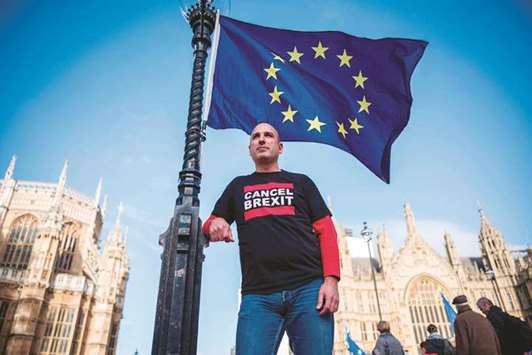The Commons leader’s remarks follow suggestions that about 10 Cabinet ministers are opposed to the prime minister’s idea for an independent exit mechanism that could allow the UK to quit a temporary customs arrangement if Brexit talks collapsed.
Leadsom’s rejection of such a key feature of May’s plan, which would give the EU a joint-say in the UK’s departure, raises the prospect of yet further resignations in the days ahead as the prime minister attempts to win her Cabinet’s backing.
Cabinet sources suggested they thought disgruntled ministers would stop short of quitting over the exit mechanism plan, but even if they were “bounced” into agreeing to the deal, May would still face a serious challenge getting it through the Commons.
Leadsom told BBC Radio 5 Live: “I am working towards getting a deal that does not require the UK to be stuck, trapped in a customs arrangement. I’m sticking in government to make sure that’s where we get to in the end.” She added: “The UK cannot be held against its will in a customs arrangement. It must be capable for the United Kingdom to decide to leave that customs arrangement and it cannot be something that the European Union can then hold us to.
“And, frankly, it’s because that would be to then fail to fulfil on the will of the people expressed in the referendum and I very much doubt that we would get it through parliament.”
The prominent leaver also rejected the option of an independent body overseeing the UK’s departure from the mechanism after the EU suggested this would have to be enforced by the European court of justice
Cabinet Brexiters have pushed for a unilateral exit mechanism, with the International Trade Secretary, Liam Fox, the first to say publicly that the power to leave the backstop should rest with the “sovereign” British government.
The Education Secretary, Damian Hinds, warned the EU would not accept the UK being able to end the backstop alone. “If you have too hard a line about saying, ‘well, we must just have a totally unilateral exit, or there’s an absolutely fixed, hard end date’, that is very, very unlikely that is going to be negotiable with the other side,” he said.
The Cabinet minister, who backed remain, urged an alliance of Conservative hard Brexiters and the DUP, who have warned they will join forces to vote down May’s withdrawal plans, to “think about the alternatives”.
As the prime minister struggled to keep her Brexit plans on track, Hinds said there would be “trade-offs” in any deal and the final agreement would not give all sides everything they wanted.
“It is not necessarily going to be something everybody is going to think is absolutely perfectly what they want,” he told BBC One’s Andrew Marr Show. “But that’s the nature of these things. There are some trade-offs.”
He added: “They need to think about what the alternatives are as well. It is no good just not liking individual aspects. If you’re going to take that view, you have got to have in mind a realistic, viable, deliverable alternative. I think people are going to be getting behind this deal and saying ‘yeah, let’s get on with it’.”
May also faces a growing rebellion from the Remainer wing of her party with rumours that four more pro-Europe ministers are on the brink of resigning after the departure of the transport minister Jo Johnson, who quit on Friday calling for a second referendum.
It comes after Steve Baker, the deputy of the European Research Group (ERG) of hard Brexit Tory MPs, and Sammy Wilson, the DUP’s Brexit spokesman, said they would oppose any agreement they thought threatened the union and could lead to a trade border in the Irish Sea.
“We share the prime minister’s ambition for an EU free trade agreement, but not at any price, and certainly not at the price of our union,” they wrote. “If the government makes the historic mistake of prioritising placating the EU over establishing an independent and whole UK, then, regrettably, we must vote against the deal.”

